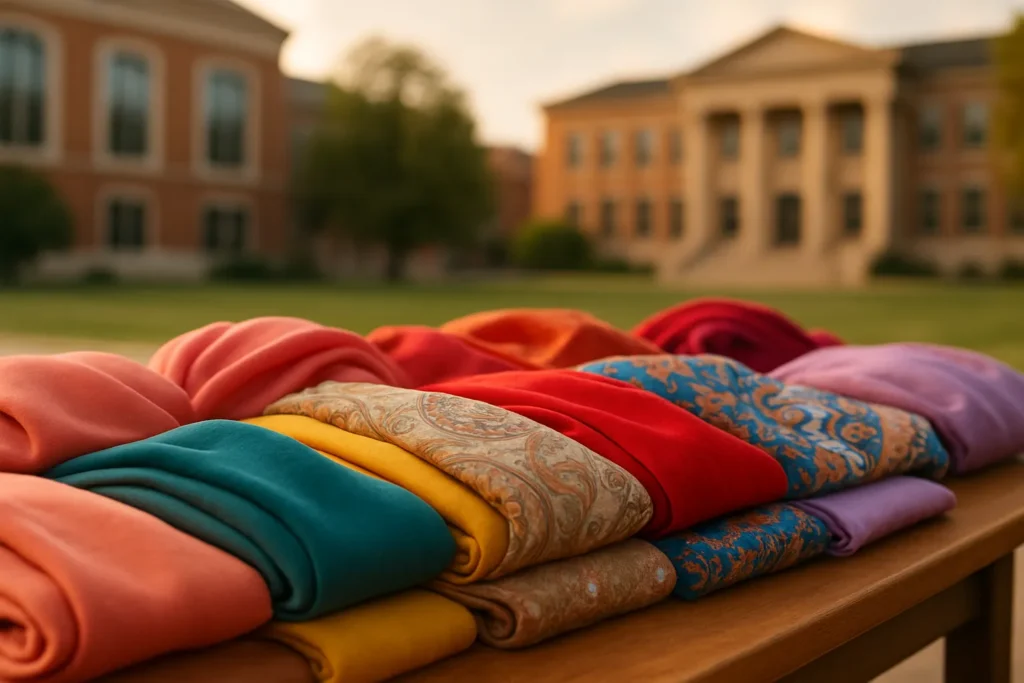Clash at the Encampment: Faith on Trial
Imagine the shock and humiliation: After peacefully protesting at a campus encampment, you’re arrested and, once in police custody, ordered to remove a deeply personal and religious head covering—your hijab—while surrounded by men, and with cameras rolling. This is precisely the ordeal two women allege they endured during a pro-Palestinian protest at the University of California, Irvine in May 2024. Their story has set off a fierce debate about religious liberty, civil rights, and the proper conduct of law enforcement—one that extends far beyond Orange County’s borders.
The forced removal of religious attire in police custody isn’t just a personal affront: it’s a violation of constitutional rights, say attorneys for Salma Nasoordeen and Shenai Aini. According to their federal lawsuit, Orange County Sheriff’s Department deputies ripped off the women’s hijabs during and after their arrest at the UC Irvine campus demonstration. In one instance, Nasoordeen alleges a deputy ripped her hijab away, stomped on it, and left her hair exposed as news crews broadcast her image. Aini describes pleading to adjust her scarf after it, too, was stomped on and unraveled—while her hands remained zip-tied behind her back. Both were then reportedly compelled to remove their hijabs at the county’s intake facility, forced to stand for booking photos before male deputies, in public view, and with little privacy.
This lawsuit, spearheaded by the Greater Los Angeles chapter of the Council on American-Islamic Relations (CAIR-LA) and supported by the Asian Law Caucus, asserts that such actions fly in the face of deeply held religious beliefs and constitutional guarantees. For Muslim women, the hijab isn’t just cloth; it’s faith, identity, and dignity wrapped into a single, visible choice—a fact well recognized by jurisprudence and civil rights guidance. “Forcing women to uncover in front of men is a grave assault on their personhood, not simply a procedural step,” argues CAIR-LA executive director Hussam Ayloush. “This is about basic respect and legal protection.”
Religious Liberty and Law Enforcement: Where Policy Meets the Constitution
Defenders of religious liberty are quick to point out that law enforcement agencies already have protocols for dealing with religious clothing. County policies generally require sensitivity to detainees’ sincerely held beliefs, calling for private searches and minimizing public exposure. Yet, as this case reveals, policies on the books do not always guarantee protections in practice.
At the heart of the matter: the First Amendment guarantees Americans the right to free exercise of religion, even when detained. According to the U.S. Department of Justice’s guidance on religious head coverings, “correctional officials must afford inmates reasonable opportunities to exercise their religious beliefs.” The U.S. Supreme Court has consistently affirmed these rights, including in the landmark case of Holt v. Hobbs (2015), which recognized that even in correctional settings, religious observation deserves protection unless denying it is necessary for a compelling security reason.
The Orange County Sheriff’s Department denies any wrongdoing. “No women were required to remove their hijabs in front of male employees or members of the public. Any removals were done privately for security reasons,” their spokesperson stated, calling the allegations inaccurate. Yet, the women’s account paints a starkly different picture—a humiliating breach of both privacy and faith. Human rights experts stress that such conflicts can arise when agencies default to security protocols over civil rights considerations, or when officers lack adequate training on religious accommodation.
A closer look reveals that this is not an isolated incident. From New York to Los Angeles, multiple lawsuits in the past decade have spotlighted law enforcement’s mishandling of religious headwear—from Sikh turbans to Jewish yarmulkes to Muslim hijabs—often resulting in six- or seven-figure settlements and mandated reforms. As civil rights attorney Abir Yusuf observes, “Too often, the removal of head coverings isn’t about safety; it’s about exerting control, with utter disregard for human dignity or constitutional obligation.”
“This isn’t just about two women in Orange County. It’s about whether America lives up to its promises of religious liberty and equal dignity for all—no matter who they are, or what they believe.”
Dignity Denied: Why Public Policy Must Evolve
Incidents like these send a chilling message to minority communities nationwide. When law enforcement disregards the religious rights of Muslim women—or any group—it erodes trust in both policing and government at large. As the Pew Research Center has documented, American Muslims face disproportionate scrutiny and discrimination, with women who choose to wear the hijab enduring the brunt of public bias and official misunderstanding. In a diverse, pluralistic democracy, treating religious symbols as contraband rather than protected expression undermines our very social fabric.
Those on the frontlines of civil rights advocacy warn that unless addressed with urgency and compassion, these abuses risk hardening divides and stoking resentment. The goal is not to shield protestors from accountability, but to demand that law enforcement respects the full range of legal protections—especially when it comes to deeply personal religious observances. Policy reforms must include not only clear guidelines for respectful searches, but also robust training so that every deputy understands both the letter and the spirit of the law.
Beyond that, the response to these events will be a litmus test for Orange County and California’s broader commitment to inclusion and justice. Will authorities take the allegations seriously and build stronger procedures—perhaps drawing from best practices in cities that have reformed booking protocols to protect modesty and religious freedom? Or will denials and procedural defenses persist, even as communities feel more alienated and marginalized?
Legal scholars like Harvard Professor Intisar Rabb remind us that “the Constitution is tested most fiercely not in times of consensus, but in moments of dissent and discomfort.” As these women seek redress, their case will rank among the latest in a storied history of Americans fighting for dignity, recognition, and the right to belong—no matter what they wear.

